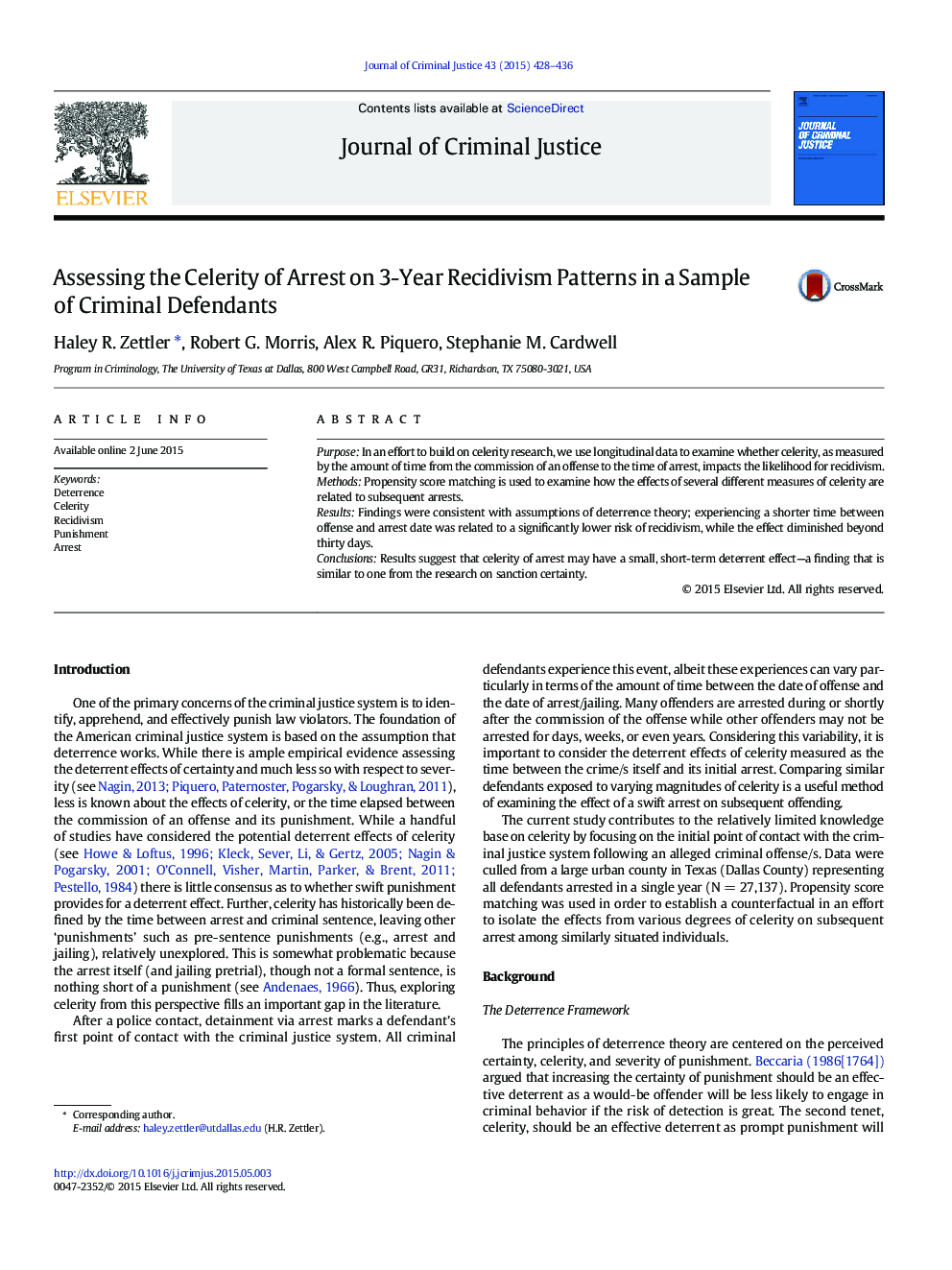| Article ID | Journal | Published Year | Pages | File Type |
|---|---|---|---|---|
| 882685 | Journal of Criminal Justice | 2015 | 9 Pages |
•We use county level data to estimate if the celerity of arrest has deterrent effects on recidivism•Weaker celerity, measured as more days between offense and arrest, was associated with higher levels of recidivism•The celerity of arrest appears to have a small, short-term deterrent effect on recidivism
PurposeIn an effort to build on celerity research, we use longitudinal data to examine whether celerity, as measured by the amount of time from the commission of an offense to the time of arrest, impacts the likelihood for recidivism.MethodsPropensity score matching is used to examine how the effects of several different measures of celerity are related to subsequent arrests.ResultsFindings were consistent with assumptions of deterrence theory; experiencing a shorter time between offense and arrest date was related to a significantly lower risk of recidivism, while the effect diminished beyond thirty days.ConclusionsResults suggest that celerity of arrest may have a small, short-term deterrent effect—a finding that is similar to one from the research on sanction certainty.
